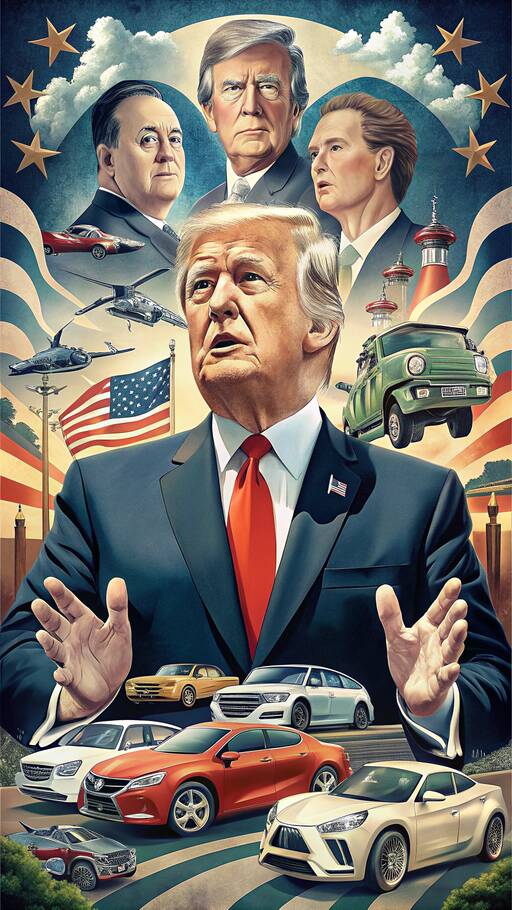
- Nature of Tariffs:
- A tariff is a tax imposed on imported goods, which is paid by the importer rather than the producing country.
- Typically, the costs associated with tariffs are passed on to consumers.
- Previous Tariff Attempts:
- Trump initially proposed tariffs on imported vehicles in February but briefly suspended them.
- The new tariffs will affect imports from countries like Canada, Mexico, South Korea, and Germany, which previously faced only a 2.5 percent tariff.
- Impact on Consumers:
- Nearly half of all passenger vehicles sold in the U.S. are imported, including popular models like the Toyota RAV4 and Ram HD.
- Lawmakers in exporting countries have threatened retaliatory tariffs, raising the risk of a trade war that could adversely impact both U.S. consumers and manufacturers.
- Tariffs on Components:
- The tariff on parts and components is particularly troubling, as many parts cross borders multiple times during production, resulting in compounded tax costs.
- This will increase the final prices of vehicles manufactured in the U.S., even those assembled domestically.
- Supply Chain Concerns:
- Trump’s assertion that the supply chain can be quickly restructured is unrealistic, as modern automotive systems have not operated that way for nearly a century.
- Experts predict that the new tariffs will likely raise vehicle prices by around $3,000 on average, impacting even those cars assembled domestically.
- The cumulative effect of existing tariffs on Chinese goods and metal imports means that automakers are already facing increased costs, worsening the situation.
- Tesla's Position:
- Tesla may be less affected since it manufactures all its vehicles in the U.S., but it still relies on imported components.
- Following the tariff announcement, automaker stocks experienced a decline in after-hours trading, indicating investor concern about the potential impacts on the automotive industry.
The recent tariff imposed by Trump appears to aim at bolstering the U.S. auto industry but may lead to higher prices and economic strain on consumers and manufacturers alike. As the situation develops, the long-term effects remain uncertain, particularly regarding the anticipated growth in domestic manufacturing.
Summary: President Trump has enacted a 25% tariff on all imported vehicles and parts, which is expected to significantly increase costs for consumers. While the intent is to strengthen U.S. manufacturing, this move could provoke retaliatory tariffs and create challenges in the automotive market.